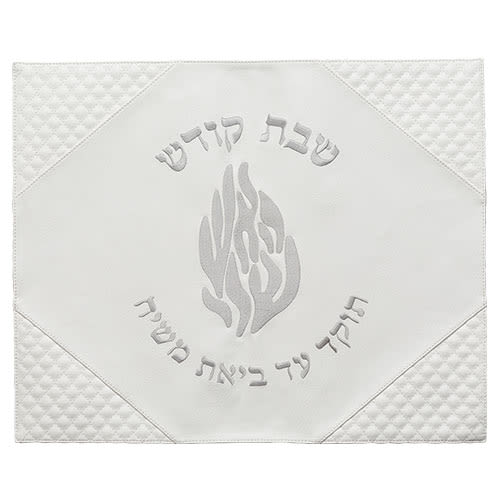
Overt Anger and Violent Revenge
The year was 1960, and he was threatening President Kennedy and the citizens of the United States: "We shall bury you," he bellowed. Imagine, a world...

Ten Exemplary Levels from Total Anger to Total Tranquility
Let’s now learn more about the ten exemplary levels from total anger to total tranquility.
Level One: Overt Anger and Violent Revenge
When I was a ten years old, I saw a memorable television broadcast of a United Nations debate. Over forty years later, the image of Soviet Premier Nikita Khrushchev – banging on the speaker’s podium with his shoe – sticks vividly in my mind. The year was 1960, and he was threatening President Kennedy and the citizens of the United States: “We shall bury you,” he bellowed. Imagine, a world leader, removing his shoe in the middle of a speech in front of the entire world!
Khrushchev’s delirious behavior at the UN was standard Level-One anger. Other infamous names that exemplify Level-One tyrannical wrath include Adolph Hitler, Joseph Stalin, Idi Amin, and Saddam Hussein.
Anger completely dominates the life of a Level-One individual. Both the human mind and the human body are slaves to extreme anger. Extreme anger kindles the lust for revenge – like a spiritual wildfire – and literally chars a person’s soul, rendering that person a spiritual cripple. The following centuries-old rabbinical tale tells about an irate woman who took her anger to the grave:
Old Mrs. Broigges[1]
Old Mrs. Broigges asked her oldest son to approach her sickbed. “Jacob, run and fetch the Rabbi; don’t delay!”
The Rabbi arrived immediately. “Mrs. Broigges,” he whispered gently in her ear, “In order to assure your place in the World to Come, you must confess your sins and make peace with your fellow man before you leave this world.”
“Yes, Rabbi,” the old woman nodded. “I want to make amends. For the last forty years, I’ve been feuding with Yenta Grossman. Please summon her so I can beg her forgiveness.”
The Rabbi sent his understudy to summon Mrs. Grossman as fast as possible. Within fifteen minutes, she joined the others by the dying Mrs. Broigges’s bedside.
Mrs. Broigges opened her glossy eyes, and focused on Yenta Grossman. She extended two frail bony hands, and said, “Yenta darling, I’m so sorry for the years of hate and anger. I want to beg your forgiveness. Come closer, dear, so I can kiss your before I leave this earth.”
There wasn’t a dry eye in the room. Obviously moved, Yenta Grossman leaned tenderly toward Mrs. Broigges, to kiss her on the lips. All of a sudden…
“Yahowwwwwwwwwiiiiiii”. Yenta released the most blood-curdling scream you ever heard. Blood splattered all over the room. Just as she was about to kiss Mrs. Broigges, the sly old warhorse clamped her teeth around Yenta’s nose with the ferocity of an irate lioness. Yenta Grossman’s nose was nearly severed from her face.
“Now, I can die peacefully,” sighed Mrs. Broigges, closing her eyes for the last time, with an ear-to-ear grin on her face.
* * *
Don’t think that the story is far-fetched. Angry people are willing to sacrifice an eternity of bliss for one bittersweet moment of revenge.
Maybe you’re thinking, “That’s not me! I’m no tyrant! I would never attack another person!” Physically violence is only the extreme manifestation of a Level One. There are other forms of Level-One anger.
Three garments clothe the human spirit. The innermost garment is a person’s thoughts. The middle garment is a person’s speech. The outer garment is a person’s deeds. — Rabbi Isaac Luria, father of Kabbala
Psychologists would say that if you refrain from hitting a person when you’re angry, you’ve succeeded in managing your anger. If you refrain from shouting as well, you score high on the anger management scale. Anger management techniques often succeed in taming violent deeds and speech. But do they eradicate angry thoughts?
Unless you uproot anger from your heart and mind, you become the victim. An angry person might learn to exercise superb restraint, and refrain from harming a fellow human. Yet, anybody that harbors thoughts or feelings of residual anger becomes a candidate for high blood pressure, a cardiac arrest, or a stroke. To avoid harming yourself, you must eradicate anger from your thoughts as well.
Let’s examine the ramifications of anger in one’s thoughts. Kabbala teaches that the thoughts are the inner garment that clothes the soul. Anger-free deeds and speech resemble a clean suit jacket and a clean shirt, while anger-ridden thoughts resemble soiled undergarments.
Have you ever been on a crowded elevator, bus, train, or subway in the middle of August? The person next to you may have been dressed in an expensive suit, but he or she smelled like they had been wearing the same smelly underwear for several days. Didn’t you feel nauseous, or like you wanted to faint?
When we make spiritual gain, our souls are allowed to enter higher spiritual worlds. The higher we go, the better our cognizance and thought processes become. Kabbala teaches that each successive spiritual realm has a sweeter, more sublime aroma to it. That’s where the expression “Heavenly aroma” originates. The soul of a person with angry thoughts assumes a spiritual stench. That person is subsequently denied entrance to the higher spiritual realm.
Even though people refrain from hitting or shouting, as long they harbor thoughts of anger and revenge, they contaminate their Divine human spirits. This notion is easy to understand. Thoughts of anger lead to hate, resentment, and jealousy. They also cause as much – if not more – damage to the individual than angry deeds and speech cause. For that reason, spiritual gain is preferable to anger management, in that the latter uproots anger from all three garments of the human spirit – deeds, speech, and thoughts.
Now, test yourself by answering the following questions:
1. Do you often feel like hitting someone?2. Do you feel an urge to retaliate when someone has insulted or harmed you?3. Do you hate a person who has dealt with you unfairly?4. At night, while lying in bed, do you think about people who have angered you?
You may not be a full-fledged Level One, but if you’ve answered at least one of the above questions in the affirmative, you still have Level One tendencies. Two “yes” answers indicate potential explosiveness, and three or more “yes” answers indicate that you’re solidly entrenched in Level One.
Knowledge of emergency first-aid procedures is vital. Potentially explosive emotional situations are frequently more dangerous than a physical trauma. Therefore, I’d like to share with you a few field-tested methods of dealing with Level-One aggressors:
* Level-One anger is no different from a bomb. If you don’t know how to defuse a bomb, move away quickly. If you don’t know how to placate a Level One, excuse yourself politely and make a quick getaway.
* You can defuse Level-One anger by placating the person. Don’t ever argue with a Level One, even when you know you’re right. Tell the irate driver that you’re sorry, or concede the point to your irate spouse. Wait for a calmer opportunity to offer your opinions.
* All Level Ones suffer from a terribly low self-image. Since they feel emotionally weak and inadequate, they use anger and physical intimidation to trample other people, thus making themselves feel better. Immediately, tell the Level One that he or she is better than you. For example, suppose a Level One husband yells at his wife for forgetting to pay the phone bill. The wife should answer calmly, “Honey, if I were blessed with your fantastic brainpower, I wouldn’t have forgotten”. Such reactions deflate a Level One. Again, placated Level Ones lose the need to assert themselves.
* Return a Level One’s cruelty with kindness. While a Level One is yelling at you, smile, compliment him or her, or make them a cup of their favorite tea or coffee. Kindness disorients and disarms a Level One individual. You’re then the winner.
* When you can’t avoid the hot coals of a Level One, close your eyes and imagine that your suffering is cleansing your soul, and saving you a worse fate like disease or bankruptcy (more on this subject in Chapter Five).
Level-One parents have a devastating emotional influence on their children.
Recently, I received a phone call from a superb second-grade teacher who had a good working knowledge of graphology and interpretation of children’s drawings. The teacher had a reclusive child in class that was progressively falling behind the group learning pace. She asked the child to draw herself. The child drew a little girl with arms tightly clutching her chest, a forlorn expression, and lowered head. She then asked the child to draw her mother. The child drew a head with a tremendous crease in the forehead, a jagged mouth, and no body.
“Rabbi,” the teacher said, “I’d like to show you the child’s drawings.” The drawings, all in black crayon, tore at my heartstrings.
The teacher explained, “The child’s self portrait with the drawn-in arms indicates extreme fear, and the droopy head shows melancholy and introversion. She drew her mother without a body, because the mother is away from home all day long. The crease in the mother’s forehead and the jagged mouth illustrate extreme continuous anger. The child is bright and sweet, but the damage to her life is irreversible.”
The teacher asked me if I would be willing to help her save the little girl’s life. I readily agreed. I called the mother – a “successful” and very hard-hitting businesswoman – identified myself, and the nature of my call.
“Rabbi,” she said, “My time is money. Besides, I didn’t ask you to butt in my life. Put your nose back in your holy books, and leave the upbringing of my children to me. Goodbye.” The phone slammed in my ear. The thud of the phone made me cringe, as if I heard the lid of a coffin slamming on the little girl’s emotional life.
To be continued . . .
(The Trail to Tranquility is available in the Breslev Store.)
* * *
[1] “Broigges” is the Yiddish term for grudgingly angry.












Tell us what you think!
Thank you for your comment!
It will be published after approval by the Editor.